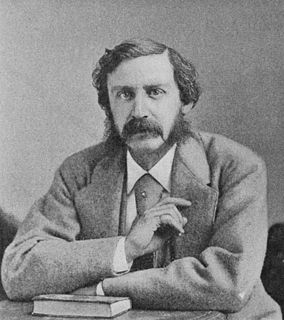A Quote by Rudolf Steiner
We create the possibility for a better human form in our next life if during our jamaloca existence after death, when we still have an astral body, we can have memories connected with music.
Related Quotes
At physical death man loses his consciousness of the flesh and becomes conscious of his astral body in the astral world. Thus physical death is astral birth. Later, he passes from the consciousness of luminous astral birth to the consciousness of dark astral death and awakens in a new physical body. Thus astral death is physical birth. These recurrent cycles of physical and astral encasements are the ineluctable destiny of all unenlightened men.
Our lives are about development, mutation and the possibility of change; that is almost a definition of what life is: change... If you disable change, if you effectively stop time, if you prevent the possibility of the alteration of an individual's circumstances — and that must include at least the possibility that they alter for the worse — then you don't have life after death; you just have death.
Your body is the ground metaphor of your life, the expression of your existence... So many of us are not in our bodies, really at home and vibrantly present there. Nor are we in touch with the basic rhythms that constitute our bodily life. We live outside ourselves - in our heads, our memories, our longings - absentee landlords of our own estate. My way back into life was ecstatic dance. I reentered my body by learning to move my self, to dance my own dance from the inside out, not the outside in.
The sphere ... which is located beyond our physical world is called the earth zone. It is also known as the zone girdling the earth. This zone has varying degrees of density, the so-called sub-planes, into which human beings enter after they leave their physical bodies. This is the astral world that individuals enter into with their astral bodies after their physical death.
The activities and effects of the Fire and Air elements in the astral sphere call forth the astral-electric fluid, and the activities and effects of the Water and Earth elements call forth the astral-magnetic fluid. The spirit-beings use these fluids to create the effects or rather the causes in our physical world. The Akasha Principle of the astral sphere maintains the harmonious equilibrium of the elements in the entire astral sphere.
In the past our glorious visions of the future - heaven, paradise, nirvana - were thought to happen after death. The newer thought is that we do not have to die to get there. We are not speaking here of life after death in some mythical heaven, but life more abundant in real time in history. We are speaking of the next stage of our social evolution.
Are we our bodies? Is a small person less than a big person, then? If we were our bodies, then when we lost an arm, or a leg, would we be less, would we begin to fade from existence? No. We are the same person. We are not our bodies; we are our thoughts. As they form, they define who we are, and create the reality of our existence.
People always say it's harder to heal a wounded heart than a wounded body. Bullshit. It's exactly the opposite—a wounded body takes much longer to heal. A wounded heart is nothing but ashes of memories. But the body is everything. The body is blood and veins and cells and nerves. A wounded body is when, after leaving a man you’ve lived with for three years, you curl up on your side of the bed as if there’s still somebody beside you. That is a wounded body: a body that feels connected to someone who is no longer there.
Death is a part of all our lives. Whether we like it or not, it is bound to happen. Instead of avoiding thinking about it, it is better to understand its meaning. We all have the same body, the same human flesh, and therefore we will all die. There is a big difference, of course, between natural death and accidental death, but basically death will come sooner or later. If from the beginning your attitude is 'Yes, death is part of our lives,' then it may be easier to face.







































